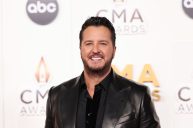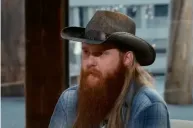America comes a long way in terms of what's socially acceptable. Naturally, the wild west type standards stay (mostly) in the past. Now, we strive to accept other people's beliefs and backgrounds. This is what makes our country truly great, a melting pot of different cultures. However, it wasn't always this way. American Idol exists as a reflection of this era.
Videos by Wide Open Country
Recently, a massive article on Rolling Stone by Nico Lang details the experiences of 18 LGBTQ+ American Idol contestants. Many of them reflect on it negatively, arguing the show bullies them at the time or sets them up for public ridicule.
Former American Idol LGBTQ+ Contestants Remember Their Bad Experiences
Zachary Travis auditions for American Idol at 16 years old in 2005. Simon Cowell's snide remarks about his appearance really bothers Travis at the time. Additionally, the fan reaction keeps him from transitioning for years. "
"I thought, 'Wow, if this is how my life's going to be, then I don't want any part of it,'" he explains. "My experience is not the normal experience of a trans person, but because I had chosen to be on a television show, I saw the worst of it."
This echoes a similar experience to Charles Berry on American Idol where Cowell and Randy Jackson grill him for his appearance. Randy questions if Berry is a woman. Simon pesters Charles to "shave off your beard and wear a dress."
Moreover, it's more than just the words of some ignorant judging and fan reaction. The uneasy relations with LGBTQ+ performers on American Idol deeply bakes itself into the culture of the show through its producers. Executive producer Nigel Lythgoe tells R.J. Helton to simmer down and stay to their public appearance. "We think you're great, but let's continue on the sweet side, with the Christian boy thing," Nigel says after seeing Helton kiss a man on the cheek.




